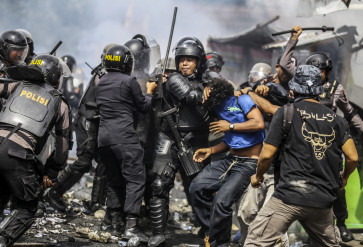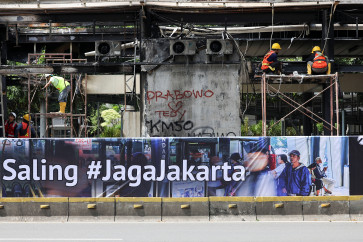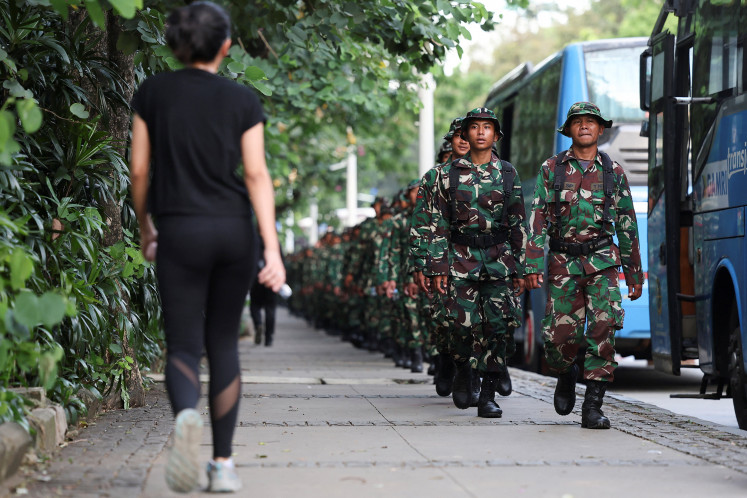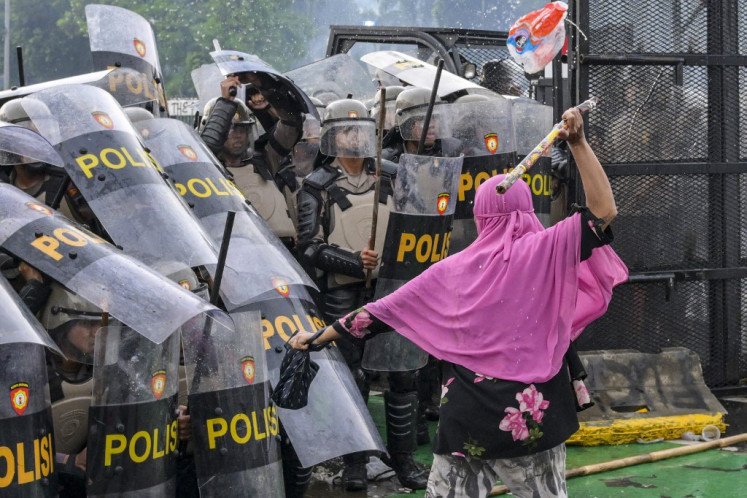Popular Reads
Top Results
Can't find what you're looking for?
View all search resultsPopular Reads
Top Results
Can't find what you're looking for?
View all search resultsLoopholes spotted in revised law
Looking deeper into the fine print, anti-graft activists are beginning to have doubts that the newly passed revised money laundering law will give the Corruption Eradication Commission (KPK) the leeway it needs to link money laundering cases to state corruption
Change text size
Gift Premium Articles
to Anyone
L
ooking deeper into the fine print, anti-graft activists are beginning to have doubts that the newly passed revised money laundering law will give the Corruption Eradication Commission (KPK) the leeway it needs to link money laundering cases to state corruption.
Roy Salam of the Indonesia Budget Center said the revised law still restricted the KPK from swiftly investigating suspected money laundering.
A new provision in the law stipulates that the Financial Transaction and Analysis Reports Centre (PPATK) must send financial analysis reports to the KPK, where as previously only the National Police and Attorney General’s Office had access to them.
However, the law says that the PPATK will give the original reports to the AGO and the police, and provide the KPK with copies.
Roy said this stipulations could mean that the KPK would receive the reports later than the prosecutors and the police, providing more time for suspects to escape the country or cover up their tracks.
This would also mean that the KPK could receive the reports after certain case processing deadlines had expired, he added.
“There’s an impression that the government is refraining from giving the KPK direct access to the data that would enable them to take quick measures,” he said. “When in fact, their expertise and speed in handling corruption-related cases is greater than that of the police and prosecutors.”
State prosecutors and the police are notorious for conducting long, drawn out investigations, many of which are eventually shelved, he added.
He said the copies of the reports might be watered-down versions of the originals or could “contain altered data”, especially if the reports had to pass over the desks of prosecutors and the police first.
“Money laundering cases are intricate and therefore hard to sniff out. That’s why the KPK needs the PPATK’s data,” he said, adding that the lack of data would hinder the KPK’s ability to investigate money laundering-prone financial markets, such as the stock market.
“This shows the reluctance of certain sides to facilitate the KPK’s entry into that sector,” he told The Jakarta Post.
Asep Rahmat Fajar from the Indonesian Legal Roundtable, said that the law should have enabled the KPK to launch probes on suspicion alone, and not have stipulated a need for initial evidence.
“The aim of conducting investigations is to find that initial evidence,” he said, adding that the PPATK’s reports on suspicious financial activities would be sufficient to launch a probe.
“The process of collecting initial evidence takes a long time,” he said, adding that “certain parties” could take advantage of this period to halt a case.
Febri Diansyah from the Indonesian Corruption Watch said the PPATK’s authority remained limited despite that it had been increased by the revised law.
The new law adds to the PPATK’s previous mandate of collecting, analyzing and disclosing financial intelligence, the authority to halt suspicious transactions.
The law should have granted PPATK officials the authority to investigate suspicious financial transactions and name suspects implicated in transactions, he said.
He added that the persisting weakness of the PPATK and the KPK indicated that the “political powers within the House of Representatives remain lenient toward corruption and support the police’s monopoly of money-laundering cases”.
“The revised law is a product of a compromise,” he said, adding that the House of Representatives feared a KPK with strong powers to address corruption-related money laundering cases.
He said this fear was connected to dubious sources of political funding, which are “always riddled with problems”. (gzl)










